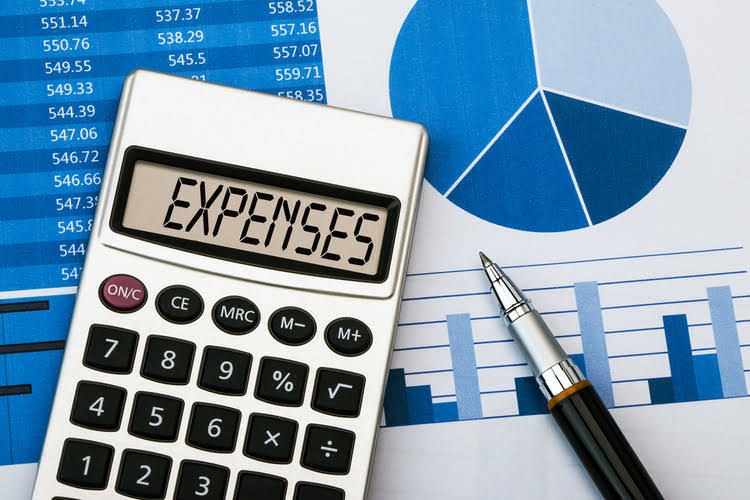
For emerging property managers, learning the basics of property management accounting is the key to running a smooth, profitable rental operation. As a property manager, you’re handling other people’s money on a daily basis. Trust accounts are a valuable way to help you keep your owners’ assets organized, stay compliant, and reconcile accounts through more accurate reports.
Asset, Liability and Equity
Many emerging property managers start with spreadsheets or QuickBooks but soon realize that these tools lack features specific to property management. Stay ahead by having good accounting practices, using helpful technology, and reviewing and improving your processes regularly. Categorize expenses between routine maintenance, emergency repairs and capital improvements.
- In an industry where 46% of managers say financials are their top challenge, accurate and timely reporting is key to survival and growth.
- If not using purpose-built property management software, make sure that all documents are organised in a logical way that will give you access to anything you need when required.
- You will need to know the property’s basis, or its original purchase price, as well as document any capital improvements made over the years.
- For property managers looking to elevate their accounting practices, explore more about how Hemlane can transform your business operations with a 14-day free trial.
- Set up custom rules to automatically assign transactions to specific properties based on vendor names or transaction details.
- You can analyze income versus expenses by property, giving you a foundation to make informed acquisition, improvement, or disposition decisions.
- Essentially, this is an organized list of all financial data for a business.
Set Up a Separate Business Account

For example, tracking rental income separately from other operating income, such as late fees or reimbursements, provides clarity and transparency. If you’re looking for a trusted bookkeeping company for your property management business, Bynnd is one of the teams that can help you with your financial and accounting records. They will take your business to the next level through their unmatched expertise in trust account reconciliations, full-service trust accounting, and consulting services.
Bookkeeping
Next, it’s time to drill down to each How to Run Payroll for Restaurants primary account and decide what your sub-accounts (and sub-accounts within sub-accounts) are. As a business grows, so too does their number of accounts (typically) grow parallel to that. When it comes to your primary accounts, there are a small collection of accounts that everything in your business will fit into. It can be a time-consuming process, which is why you might be tempted to put it off but finding the right tool to help you get it done can save you plenty of money.
- When you customize your approach, you improve the accuracy of your financial statements and make year-end closing and tax filing more manageable.
- So rent revenue is recorded in the month it is due, regardless of when payment is received.
- This makes it easy to add subaccounts later without reorganizing your entire system, which can be especially useful as your portfolio grows.
- These items might exist in a variety of accounts, so ideally, you want to label them as tax-deductible when entering them into your ledger.
- As your property portfolio grows, accounting becomes more complex with the need to track income and expenses across multiple properties, owners, and bank accounts.
Although accounting may be the last thing an investor wants to do, the truth is that it’s an important part of owning and operating rental property. A good rental property chart of accounts can help investors accurately keep track of revenues and expenses, show an investor’s true net worth, and make tax preparation much easier. Property management accounting is the specialized practice of managing and recording the financial transactions and activities related to property management. It involves tracking income from rent, managing expenses for maintenance and utilities, and taking all the necessary steps to keep financial reporting accurate and up to date. An accounting period is a specific time frame during which financial transactions and activities are recorded and reported. This period can be monthly, quarterly, or annually, and it helps property management chart of accounts property managers track income, expenses, and financial performance consistently.

Monthly reconciliation should be thorough, match all transactions and investigate any discrepancies. Work backwards from owner payment dates so you have the numbers when you need them. Security deposit management requires attention to detail and compliance with local laws. Remember this is a basic template – as you’ll need to https://cham3a.ma/2024/02/01/accounting-for-royalties-and-licensing-fees/ customize it to your business needs and local requirements.
They provide property managers with the insights needed to evaluate property performance, make informed decisions, and keep property owners updated on financial health. I think using a rental property chart of accounts template spreadsheet helps me keep every detail in one place. In my opinion a clear chart of accounts gives me confidence in tracking my rental properties. For me, I rely on a well-organized spreadsheet for a rental property chart of accounts to guide my financial decisions. When you use a chart of accounts template tailored for real estate, you streamline setup and reduce the risk of missed accounts or incorrect classifications.

That can include transactions such as rent collection, property taxes, insurance, repairs and more. Maintaining accurate financial records requires periodic reviews and updates of your chart of accounts. Regularly reviewing your chart of accounts helps identify trends and make adjustments to improve the financial health of your property management business. It ensures that all accounts remain relevant and useful for financial reporting. It’s necessary to document rent payments separately from other income types such as late fees or security deposits when recording them. Each rent payment should specify the tenant responsible and the payment method used.
Popular options include:
- Track deductible expenses (like repairs and marketing) to save on taxes.
- For larger organisations or business owners with a team of staff members, accrual accounting is generally more appropriate.
- Platforms like DoorLoop are designed specifically for property management, making it easy to handle both accounting and day-to-day operations in one place.
- But with great rewards comes great responsibility – managing your investment effectively.
- It can significantly enhance efficiency by preventing repetitive tasks so you can focus on more strategic business planning.
Partner with Springbord to streamline your financial processes and achieve greater operational efficiency. In this sample, Legal Fees should be a part of Professional Fees as a sub-category. Edit the account Legal Fees and check the box for sub-account and select Professional Fees and then select Save and Close. Complete the same actions for Accounting Fees and Consulting Fees or any other accounts you prefer to be sub-accounts. As you may recall there were 5 accounts that we were unable to delete. For the accounts that did not have an account number, we will add the account number.